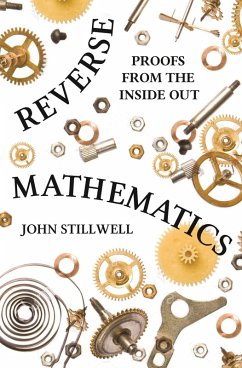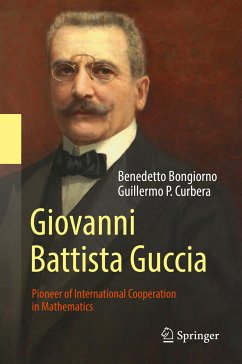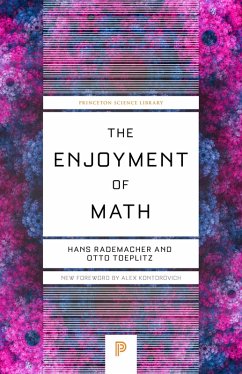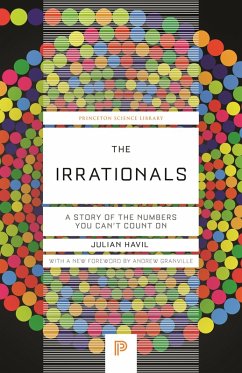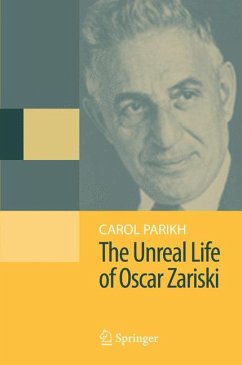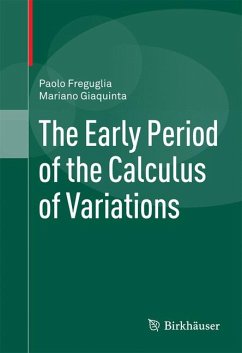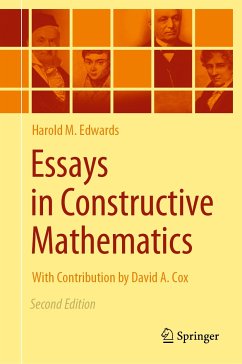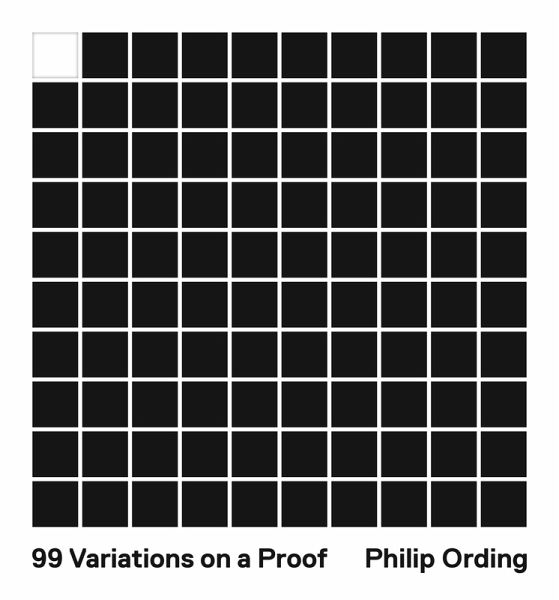
99 Variations on a Proof (eBook, PDF)
Versandkostenfrei!
Sofort per Download lieferbar
14,95 €
inkl. MwSt.
Weitere Ausgaben:

PAYBACK Punkte
7 °P sammeln!
An exploration of mathematical style through 99 different proofs of the same theoremThis book offers a multifaceted perspective on mathematics by demonstrating 99 different proofs of the same theorem. Each chapter solves an otherwise unremarkable equation in distinct historical, formal, and imaginative styles that range from Medieval, Topological, and Doggerel to Chromatic, Electrostatic, and Psychedelic. With a rare blend of humor and scholarly aplomb, Philip Ording weaves these variations into an accessible and wide-ranging narrative on the nature and practice of mathematics.Inspired by the ...
An exploration of mathematical style through 99 different proofs of the same theorem
This book offers a multifaceted perspective on mathematics by demonstrating 99 different proofs of the same theorem. Each chapter solves an otherwise unremarkable equation in distinct historical, formal, and imaginative styles that range from Medieval, Topological, and Doggerel to Chromatic, Electrostatic, and Psychedelic. With a rare blend of humor and scholarly aplomb, Philip Ording weaves these variations into an accessible and wide-ranging narrative on the nature and practice of mathematics.
Inspired by the experiments of the Paris-based writing group known as the Oulipo-whose members included Raymond Queneau, Italo Calvino, and Marcel Duchamp-Ording explores new ways to examine the aesthetic possibilities of mathematical activity. 99 Variations on a Proof is a mathematical take on Queneau's Exercises in Style, a collection of 99 retellings of the same story, and it draws unexpected connections to everything from mysticism and technology to architecture and sign language. Through diagrams, found material, and other imagery, Ording illustrates the flexibility and creative potential of mathematics despite its reputation for precision and rigor.
Readers will gain not only a bird's-eye view of the discipline and its major branches but also new insights into its historical, philosophical, and cultural nuances. Readers, no matter their level of expertise, will discover in these proofs and accompanying commentary surprising new aspects of the mathematical landscape.
This book offers a multifaceted perspective on mathematics by demonstrating 99 different proofs of the same theorem. Each chapter solves an otherwise unremarkable equation in distinct historical, formal, and imaginative styles that range from Medieval, Topological, and Doggerel to Chromatic, Electrostatic, and Psychedelic. With a rare blend of humor and scholarly aplomb, Philip Ording weaves these variations into an accessible and wide-ranging narrative on the nature and practice of mathematics.
Inspired by the experiments of the Paris-based writing group known as the Oulipo-whose members included Raymond Queneau, Italo Calvino, and Marcel Duchamp-Ording explores new ways to examine the aesthetic possibilities of mathematical activity. 99 Variations on a Proof is a mathematical take on Queneau's Exercises in Style, a collection of 99 retellings of the same story, and it draws unexpected connections to everything from mysticism and technology to architecture and sign language. Through diagrams, found material, and other imagery, Ording illustrates the flexibility and creative potential of mathematics despite its reputation for precision and rigor.
Readers will gain not only a bird's-eye view of the discipline and its major branches but also new insights into its historical, philosophical, and cultural nuances. Readers, no matter their level of expertise, will discover in these proofs and accompanying commentary surprising new aspects of the mathematical landscape.
Dieser Download kann aus rechtlichen Gründen nur mit Rechnungsadresse in A, D ausgeliefert werden.




